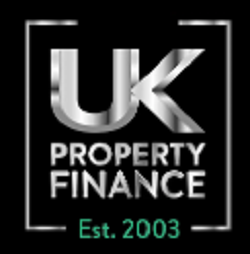While exploring funding options for a planned project or purpose, both secured and unsecured loans may be available to you. But assuming you are eligible for both, which is the better of the two?
Is it always advisable to go for an unsecured loan to avoid putting your assets at risk, or are there benefits to secured borrowing to consider?
What is a Secured Loan?
As the name suggests, a secured loan is issued with some type of collateral (security) to back the loan. This is where the borrower effectively agrees to relinquish ownership of an asset to the lender, in the event that they fail to meet their repayment obligations.
This asset is usually the borrower’s home, but could also be other assets of value – vehicles, jewellery, business assets and so on.
Where a loan is secured against assets of value, the value of the loan issued can be much higher. Secured loans are typically available starting from £10,000 and with no specific upper limits.
In addition, the fact that the loan is secured against assets of equivalent value makes it a comparatively safe transaction from the perspective of the lender. This almost always means more competitive interest rates and lower borrowing costs than a comparable unsecured loan.
Secured loans are therefore (usually) the cheaper option, but also carry the risk of asset repossession. A secured loan should therefore never be taken out unless the applicant has 100% confidence in their capability to repay their debt, in full and on time.  What is an Unsecured Loan?
What is an Unsecured Loan?
Unsecured loans are issued on the basis of trust and merit, rather than assets and security. In order to qualify for an unsecured loan, you will need to present your lender with sufficient evidence to convince them you are a safe bet.
This will include a full credit check, employment status, proof of income and full disclosure of your current outgoings. All of which will be used to determine your eligibility, making it difficult for those with a questionable financial past to qualify for unsecured lending.
An unsecured loan will typically be issued up to a maximum value of £10,000 – larger sums are rarely available without collateral. As there is no security to back the loan, interest rates and borrowing costs may be slightly higher than those of a similar secured loan.
With sums available starting from just £500, unsecured loans are great for covering smaller costs and funding small-scale projects. They tend to cost more and are issued only to applicants with an appropriate profile, but do not carry the risk of asset repossession in the event of non-repayment.
If unsure which of the two options is best for you, consult with an independent broker before applying. This will enable you to build a comprehensive picture of the options available, before targeting a top-rated lender to ensure you get an unbeatable deal.
 Craig Upton supports UK businesses by increasing sales growth using various revenue streams online. Creating strategic partnerships and keen focus to detail, Craig equips websites with the right tools to increase traffic. Craig is also the CEO of iCONQUER, a UK based SEO Firm and has been working in the digital marketing arena for over a decade. A trusted SEO consultant and trainer, Craig has worked with British brands such as FT.com, DJKit, UK Property Finance, Serimax and also supported UK doctors, solicitors, builders, jewellers, to mention a few, gain more exposure online. Craig has gained a wealth of knowledge within the digital marketing space and is committed to creating new opportunities working with UK companies.
Craig Upton supports UK businesses by increasing sales growth using various revenue streams online. Creating strategic partnerships and keen focus to detail, Craig equips websites with the right tools to increase traffic. Craig is also the CEO of iCONQUER, a UK based SEO Firm and has been working in the digital marketing arena for over a decade. A trusted SEO consultant and trainer, Craig has worked with British brands such as FT.com, DJKit, UK Property Finance, Serimax and also supported UK doctors, solicitors, builders, jewellers, to mention a few, gain more exposure online. Craig has gained a wealth of knowledge within the digital marketing space and is committed to creating new opportunities working with UK companies.


